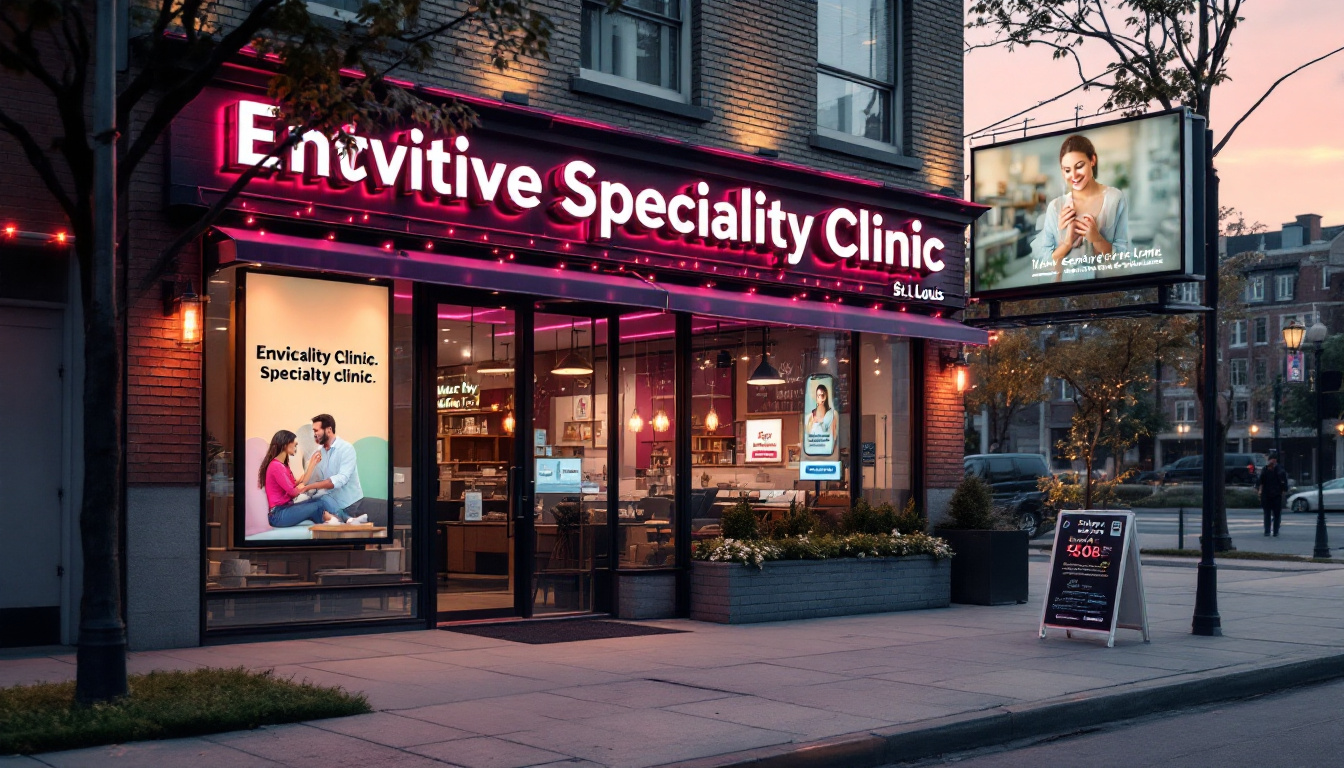Best Practices for Running Geo-Targeted PPC Ads in St. Louis, MO

Geo-targeted pay-per-click (PPC) advertising is a powerful method for local businesses to reach their audience more effectively. This article will explore several best practices for implementing geo-targeted PPC ads specifically in St. Louis, MO. By understanding the local market, advertisers can optimize their campaigns to achieve better results and maximize their advertising budget.
The Benefits of Geo-Targeting for St. Louis, MO Advertisers
Geo-targeting is not just about location; it’s about precision marketing. Local advertisers in St. Louis can leverage geo-targeting to connect with their audience based on geographic location, increasing the relevance of their ads. Here are some key benefits:
- Increased Relevance: By targeting ads to specific neighborhoods or even metropolitan areas, businesses can tailor their messaging to resonate with the local audience.
- Cost Efficiency: Geo-targeting can reduce wasted ad spend by ensuring ads are shown only to users within a specific radius who are more likely to convert.
- Enhanced Engagement: Local relevance often leads to higher click-through rates and engagement, as users are more inclined to respond to ads that relate to their immediate surroundings.
- Competitive Advantage: Businesses that utilize geo-targeting effectively can stand out from competitors who may not be using such a strategy.
In a diverse city like St. Louis, where different neighborhoods have distinct characteristics and demographics, the benefits of geo-targeting become even more pronounced. For instance, areas like the Central West End, known for its vibrant arts scene and upscale dining, may respond better to luxury goods and cultural events, while neighborhoods like North St. Louis may have a different set of priorities, such as community services and affordable products.
Understanding St. Louis Demographics
Before diving into geo-targeted PPC campaigns, it is essential to gain insight into the demographics of St. Louis. Factors including age, income levels, and interests can significantly influence the success of your ads.
Research shows that a significant portion of St. Louis residents are young professionals and families. Tailoring your ads to speak to these demographics can reinforce your campaign’s effectiveness. For example, targeting ads that highlight family-friendly activities in Forest Park or local events in the Loop can attract the attention of parents looking for weekend plans, while young professionals may be more interested in nightlife and dining options in downtown St. Louis.
Market Research and Analysis
To implement a successful geo-targeted strategy, consider conducting thorough market research. Utilizing tools available within Google Ads can help you refine your understanding of local search trends and consumer behavior.
An in-depth analysis will ensure that you create ads that not only speak to the right audience but also resonate with their needs and preferences. Additionally, monitoring local events, seasonal trends, and even the impact of local sports teams can provide valuable insights. For instance, during the baseball season, ads promoting local bars and restaurants near Busch Stadium can capitalize on the influx of fans, while holiday-themed campaigns can be tailored to reflect the festive spirit of neighborhoods known for their decorations and celebrations.
How to Set Up Location Targeting in Google Ads
Setting up location targeting in Google Ads is a straightforward process, but it requires careful consideration. Here’s a step-by-step guide:

- Sign in to Google Ads: Access your account and select the campaign you wish to target geographically.
- Navigate to Settings: In the campaign settings, find the “Locations” section.
- Select Target Locations: You can search for specific regions, such as cities or even a geographical radius. Enter “St. Louis, MO” and adjust the radius as necessary.
- Exclusion Options: Consider excluding areas that don’t yield conversions or relevancy, ensuring your budget is spent wisely.
- Save Changes: Don’t forget to save your targeted locations to allow the changes to take effect.
Location targeting helps refine your audience, ensuring you reach those most likely to engage with your business. By focusing on specific areas, you can tailor your messaging and offers to resonate with local consumers, increasing the likelihood of conversions. This targeted approach not only enhances the efficiency of your ad spend but also improves the overall performance of your campaigns.
Utilizing Radius Targeting
Another valuable method is radius targeting, which allows you to define a specific geographical radius around a particular area. For example, if your business is located in downtown St. Louis, you may want to target users within a 10-mile radius to attract customers.
This method enables you to capture users who may not be searching for your business specifically, but are within a proximity that makes them potential customers. It can be particularly effective for local services, restaurants, and retail stores. Moreover, radius targeting can be adjusted based on factors such as time of day or specific promotions, allowing businesses to optimize their reach dynamically. For instance, a coffee shop might increase its radius during morning hours to attract commuters, while a boutique may focus on a smaller area during a weekend sale to draw in local shoppers.
Additionally, leveraging data analytics can enhance your radius targeting strategy. By analyzing customer behavior and foot traffic patterns, you can identify hotspots where potential customers are likely to be. This data-driven approach allows you to refine your targeting further, ensuring that your ads are not only reaching the right audience but are also aligned with their habits and preferences. As a result, radius targeting becomes a powerful tool in your Google Ads arsenal, driving more relevant traffic to your business and improving overall engagement.
Tips for Refining Your Local PPC Strategy
While setting up geo-targeting is vital, continual refinement of your PPC strategy is equally important. Here are some practical tips:
- Monitor Performance: Regularly review your ad performance data to understand what’s working and what isn’t. Utilize A/B testing to determine the most effective ad creatives.
- Leverage Ad Scheduling: Time your ads to appear when your target audience is most likely to engage. For instance, if your data shows a spike in searches for local services during weekends, adjust your schedule accordingly.
- Engage With Local Events: Tap into local events, festivals, or community gatherings in St. Louis to align your campaigns with local interests.
- Utilize Local Keywords: Incorporate local keywords into your ad copy and landing pages to increase visibility in local searches.
These strategies not only refine your approach but also increase the potential to drive more qualified leads to your site. Additionally, consider the importance of mobile optimization in your PPC campaigns. With a significant number of users searching for local services on their smartphones, ensuring that your ads and landing pages are mobile-friendly can greatly enhance user experience and conversion rates. This means not just having a responsive design, but also ensuring that your call-to-action buttons are easily clickable and that your content loads quickly on mobile devices.
Furthermore, don’t underestimate the power of customer reviews and testimonials in your PPC strategy. Incorporating positive feedback from local customers into your ads can build trust and credibility, making your business more appealing to potential clients. Highlighting specific reviews that mention your exceptional service or unique offerings can resonate well with local audiences, encouraging them to choose your business over competitors. By weaving in these elements, you can create a more compelling and effective local PPC campaign that stands out in a crowded marketplace.
Tools for Analyzing Local Market Performance
To measure the effectiveness of your geo-targeted PPC campaigns, employing the right analytics tools can make a significant difference. Here are some recommended tools:

- Google Analytics: With location-based reporting features, Google Analytics can help you track the behavior of users coming from specific areas, allowing you to evaluate your ROI accurately.
- SEMrush: This tool provides insights into local keywords and competition, helping you assess which keywords are driving traffic in St. Louis.
- Moz Local: Moz Local helps manage your local listings and ensure your business information is accurate and consistent across various platforms.
- Facebook Ads Manager: If you’re combining PPC strategies across platforms, use Facebook’s robust targeting features to analyze user engagement from your PPC campaigns.
By leveraging these tools, you gain actionable insights that allow you to continuously improve your campaigns.
Examples of Effective Geo-Targeted Campaigns in St. Louis, MO
To illustrate the effectiveness of geo-targeted PPC ads, let's explore some successful campaigns conducted by St. Louis-based businesses:
- Local Restaurant Promotions: A St. Louis restaurant ran a campaign targeting residents within a 5-mile radius, promoting a weekend brunch special. The restaurant saw a 30% increase in foot traffic over that weekend.
- Home Service Ads: A plumbing company utilized geo-targeting to reach homeowners in specific St. Louis neighborhoods. This focused approach led to a 50% increase in service requests compared to a traditional citywide campaign.
- Event Sponsorships: A local bar paired its geo-targeted ads with ads for a nearby music festival, driving traffic to their location before and after the event.
These examples reflect the power of geo-targeting to engage local consumers, drive traffic, and increase conversion rates.
In conclusion, implementing geo-targeted PPC ads in St. Louis requires a strategic approach that includes understanding local demographics, setting accurate targeting options, refining your strategy based on performance, and utilizing various analytics tools. By following these best practices, advertisers can significantly enhance their local marketing efforts, ultimately leading to improved business outcomes.

As a Google Ads expert, I bring proven expertise in optimizing advertising campaigns to maximize ROI.
I specialize in sharing advanced strategies and targeted tips to refine Google Ads campaign management.
Committed to staying ahead of the latest trends and algorithms, I ensure that my clients receive cutting-edge solutions.
My passion for digital marketing and my ability to interpret data for strategic insights enable me to offer high-level consulting that aims to exceed expectations.



















